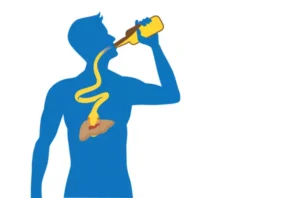
Goals might differ depending on the individual and the conversation. If your loved one is willing to talk about treatment, discuss their preferences. These individuals might need a break from the treatment talk. Additionally, the intervention may set off other issues or complicate your relationship with them. Regardless of the outcome of the intervention, it’s important to be patient.
Giving consequences
It is important that the conversation happens when the person a friend or relative wants to help is sober. They are best to pick a place that is private, safe, and comfortable for how to do an intervention for an alcoholic both parties. It can be challenging to provide the appropriate help and support without the right knowledge. To help someone with AUD, a friend or relative can begin by reading about AUD and the reasons it might develop.
Do Not Argue With Your Loved One
Even people with the best intentions may unintentionally play a role in enabling or supporting alcohol use disorder, which is why recognizing codependency is essential. Continuing care implies continued but less structured and frequent support from medical professionals. They’ll also make sure everyone is speaking fairly and truthfully about their condition and options. Usually, professional https://ecosoberhouse.com/ interventions are more successful than informal ones.
- If a person does begin to experience cravings, or if they have a relapse, they don’t have to start all over—their treatment professionals will help them get back on track.
- This could be in a one-on-one conversation or an intervention with others who are concerned about the person.
- Your loved one’s recovery can be a long process, so you need to maintain a balance in your life.
- If you have a family member with a substance use problem, research your options and consider talking to a therapist to help determine which method might be right for your family and situation.
- However, it is crucial that an individual with AUD receives professional medical help, as well.
- If your loved one drank because of boredom, anxiety, or loneliness, for example, those problems will still be present once they’re sober.
How to Stage an Alcohol Abuse Intervention
Researching rehab centres like Recovery Lighthouse and having brochures, websites or contact details on hand can make the decision feel less overwhelming for your friend. If the person enters a rehab center, continue to show them your love and support to help make the process as positive as possible. If he or she commits to therapy or an outpatient program, such as Alcoholics Anonymous, you might want to check in to make sure they’re sticking to their word.

Health Categories to Explore

An intervention team usually includes 4 to 6 people who are important in your loved one’s life — people your loved one likes, respects or depends on. This may include, for example, a best friend, adult relatives or a member of your loved one’s faith community. Your intervention professional can help you figure out who should be on your team.

In some cases, a person might believe someone they care about does not have AUD but still has a drinking problem. In these instances, the steps in this section may still be useful. The American Addiction Centre (ACC) are available 24/7 to provide confidential advice regarding treatment options. The help and support from partners, relatives, and friends are invaluable to a person with AUD.

Who should be on the intervention team?
Someone with the condition is unable to stop or control their alcohol use. It may even be helpful to know if they’re aware of the CRAFT method and other treatment plans like the Sinclair Method, which Dr. Umhau practices. Training with CRAFT-certified therapists can be more expensive, and some of them focus entirely on this one method of treatment. When looking for a therapist for your loved one or the impacted family members, search through their website to see what training and methodologies they’ve studied. The CRAFT program wants family members to let the person struggling with addiction see the harm they’re causing themselves and others.
- You might slowly begin to accept more and more unacceptable behavior.
- Alcohol use disorder, or alcoholism, is more than just drinking too much from time to time.
- According to SAMHSA, binge drinking for males was defined as drinking five or more drinks on the same occasion on at least 1 day in the past 30 days.
- However, there are certain things you can do that may help relieve the pressure, and in some cases, also better help your loved one start their path to recovery.
Protect your children, and don’t hesitate to keep them away from someone who drinks and does not respect your boundaries. Growing up in a home where alcohol use is common, can leave lasting scars. If you have children, it’s important to protect them from unacceptable behavior as well. Do not tolerate hurtful or negative comments addressed towards them. These comments can result in lasting damage to a child’s psyche.
